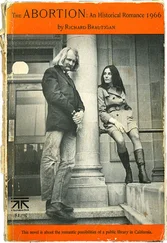Richard Dowling - The Duke's Sweetheart - A Romance
Здесь есть возможность читать онлайн «Richard Dowling - The Duke's Sweetheart - A Romance» — ознакомительный отрывок электронной книги совершенно бесплатно, а после прочтения отрывка купить полную версию. В некоторых случаях можно слушать аудио, скачать через торрент в формате fb2 и присутствует краткое содержание. Издательство: Иностранный паблик, Жанр: foreign_prose, на английском языке. Описание произведения, (предисловие) а так же отзывы посетителей доступны на портале библиотеки ЛибКат.
- Название:The Duke's Sweetheart: A Romance
- Автор:
- Издательство:Иностранный паблик
- Жанр:
- Год:неизвестен
- ISBN:нет данных
- Рейтинг книги:3 / 5. Голосов: 1
-
Избранное:Добавить в избранное
- Отзывы:
-
Ваша оценка:
- 60
- 1
- 2
- 3
- 4
- 5
The Duke's Sweetheart: A Romance: краткое содержание, описание и аннотация
Предлагаем к чтению аннотацию, описание, краткое содержание или предисловие (зависит от того, что написал сам автор книги «The Duke's Sweetheart: A Romance»). Если вы не нашли необходимую информацию о книге — напишите в комментариях, мы постараемся отыскать её.
The Duke's Sweetheart: A Romance — читать онлайн ознакомительный отрывок
Ниже представлен текст книги, разбитый по страницам. Система сохранения места последней прочитанной страницы, позволяет с удобством читать онлайн бесплатно книгу «The Duke's Sweetheart: A Romance», без необходимости каждый раз заново искать на чём Вы остановились. Поставьте закладку, и сможете в любой момент перейти на страницу, на которой закончили чтение.
Интервал:
Закладка:
"Oh, how can you ask such a question? I'd go anywhere with you. What does it matter where I am so long as I am with you, Charlie?"
He thanked her and kissed her, and soon after took his leave; for he had work to do that evening.
As he walked home in the fresh bright air his step was elastic, and he carried his head thrown back. His happiness was now complete. The two great points he had reserved had been cleared up. May cared only for himself. Whatever time might unearth about his father and mother, she would not be altered by it; and if anything obliging him to leave the country did transpire, she would marry him and go with him all the same as if nothing had come to light. This was the most peaceful, contented and joyous day of his life.
When Cheyne arrived at the house in Long Acre, he found Mr. Whiteshaw, the carriage-builder, standing in his wareroom.
"Good afternoon, Cheyne," cried the builder cheerily.
"Good afternoon," said Cheyne, pausing and drawing near.
"What news?" asked the carriage-builder, rubbing his hands, as though news ever so dismal would be preferable to none.
"Not a word," said Cheyne, stepping into the wareroom.
"Heard anything of the Duke of Shropshire since?"
"No, no. Nothing particular. Except that the Duke of Dorsetshire, in a note I got from him a day or two ago, says his grace is awfully cut up by the way these rascally Radicals are behaving."
"If I were at the head of affairs now, I'd pass a law treating all Radicals as working-men out of situations, and I'd clap every man Jack of them into jail. That's what I'd do."
"You'd never get a bill like that through the Commons, although you might through the Lords."
"Ah, I suppose not; I suppose not, Cheyne. We live in a degenerate age. But you, if you were in the House, would you vote for such a measure?"
"I am afraid it is extreme," said Cheyne, with a good-humoured smile.
"But you, you ought to be dead against Radicals and demagogues. Your name alone-why, sir, your name alone shows you come of a great stock, the great house of Shropshire. (By-the-way, we weren't long putting that brougham right for his grace. There it is, you see; and a pretty job too.) But, as I was saying, you must be a member of that family. Why, look at how few there are of the name."
"No, no. I assure you, most sincerely, I am in no way connected with any great house. The name is common enough in England-common enough. Well, I must be off to work. I have a whole lot of stuff to get away by to-night's mail for the morning."
With these words Cheyne walked out of the wareroom and got to the hall-door, and mounted the stairs.
"I never can understand," thought the carriage-maker, "why this Cheyne, who lies right and left about noblemen, should have such a strong objection to thinking he was descended from a big swell."
When Cheyne reached his own room he sat down and thought a moment. Then he said to himself very gravely:
"I wish Whiteshaw would give up this connecting my name with that of the Duke of Shropshire. Supposing a person found a poor deserted child, would it be kinder to name it Fitzalan Howard or plain William Brown?"
And when he had put the question to himself, he fell to wondering very unpleasantly whether or not he had at one time been a poor deserted child, picked up by some passer-by, to whom had been given the high-sounding name of Charles Augustus Cheyne.
So the afternoon which had been the happiest of his life ended under a sombre cloud.
CHAPTER VII.
A STORY OF A CITY
Wyechester is a small city in the Midlands. It does not contain more than thirty thousand people, so that it is possible for every man and woman of the middle class to know everyone of the same class, or, at all events, to know everything about everybody, which is almost as good, if not better.
Wyechester is not a place of any importance now, save what it draws from its cathedral and its bishop, and the other great dignitaries around the cathedral. If the city disappeared wholly one night the world of England would hardly miss it, provided the cathedral and church dignitaries were spared. It does not manufacture anything; it has no mines near it. No one ever thought of hunting or shooting in the neighbourhood but those who lived in the neighbourhood. The fishing is poor; and the land, although fairly fertile, is not held in much esteem by farmers. It is a faded, washed-out, old cathedral city, surrounded on all sides by an uninteresting country.
It had one virtue, which, as it concerned only itself, did not spread its fame-it was pious. It was the most pious city in England. It could not, of course, be said with truth that there was no hypocrisy in it; but, speaking relatively, there was very little, much less than in any other city of its size.
It was pious, and it was severe. To do any wrong there was much worse than to do the same wrong in any other city or town in England. Going to church twice on Sunday regularly for thirty years entitled one to consideration; going once freed one from adverse comment; going only twice a month was looked on as bad, very bad; but not going at all made middle-class people in Wyechester think that the sooner the offender left the diocese the better.
Five-and-thirty years before the pole of the omnibus went through the door of the Duke of Shropshire's brougham, five-and-thirty years before Edward Graham decided upon painting that landscape revealed to him under the bridge at Anerly, Mrs. Mansfield, widow of the Rev. James Mansfield, lived in Wyechester. The Rev. James Mansfield died very young. He was, at the time of his death, curate to one of the city churches, and was looked upon as a very exemplary and clever young man, who had a career before him. But his career seemed never to have begun, for he died before he was thirty. He left behind him a widow and daughter and about a hundred and fifty pounds a year, from money in the Funds, willed him by an aunt who had the warmest affection for this nephew.
On this modest income, and about seventy pounds a year coming in from other sources, the widow managed to live quietly, respectably, and to give her daughter a very good education. Five-and-thirty years before what may be taken as the present time of this story, a thing occurred which horrified all Wyechester and bowed down the head of Mrs. Mansfield for ever.
At that time Harriet Mansfield was on a visit with some friends in the country. One morning Miss Mansfield left the house of the friends she was staying with and did not return. Neither did she go home. After days of anxiety a letter, in the daughter's handwriting, came from London, in which she simply said she had left her home for good, and that there was no chance whatever of her going back.
Mrs. Mansfield was then forty-three years of age, but, with the flight of her daughter, her life may be said to have closed, although she was living at the time this story opened, being then seventy-eight years of age. She loved her daughter with all the love she was capable of. But she was a hard, cold, stern nature. To her daughter she never showed her love except in rigours, and insisting on doing her own duty by her child, without any sympathetic conception of what effect doing her own duty would have on a gentle, soft, and confiding nature like her daughter's. The result was that the mother did her duty according to her own lights. She endeavoured to bring up her daughter according to her own rigid code, and she justified herself to herself.
But the daughter had no Spartan nature. She loved pretty things and soft subjects to wear. She was not allowed to keep pets, or to be too familiar with other children. While in the world, and now and then coming in contact for a brief period with pleasant people and grateful things, she was under a discipline as rigid as a convent without any sustaining code; for she did not believe it necessary to be uncomfortable in order to be good. So when love for the first time approached her, and she was from under the immediate eye of her mother, the oppressive goodness of that cathedral city, and the prospect of love and brightness and sunshine and freedom were all presented to her eyes by a man who owned the gift of erratic eloquence, and who was richer than any other man she had ever met, richer than even the bishop, she did not hesitate long. She fled with him. She knew that running away was wrong, but she under-estimated the risk, or indeed did not think there was any risk at all; for she was as simple as a child, and did willingly all things her lover told her, as all her life she had reluctantly obeyed her mother when uncongenial tasks were imposed.
Читать дальшеИнтервал:
Закладка:
Похожие книги на «The Duke's Sweetheart: A Romance»
Представляем Вашему вниманию похожие книги на «The Duke's Sweetheart: A Romance» списком для выбора. Мы отобрали схожую по названию и смыслу литературу в надежде предоставить читателям больше вариантов отыскать новые, интересные, ещё непрочитанные произведения.
Обсуждение, отзывы о книге «The Duke's Sweetheart: A Romance» и просто собственные мнения читателей. Оставьте ваши комментарии, напишите, что Вы думаете о произведении, его смысле или главных героях. Укажите что конкретно понравилось, а что нет, и почему Вы так считаете.












